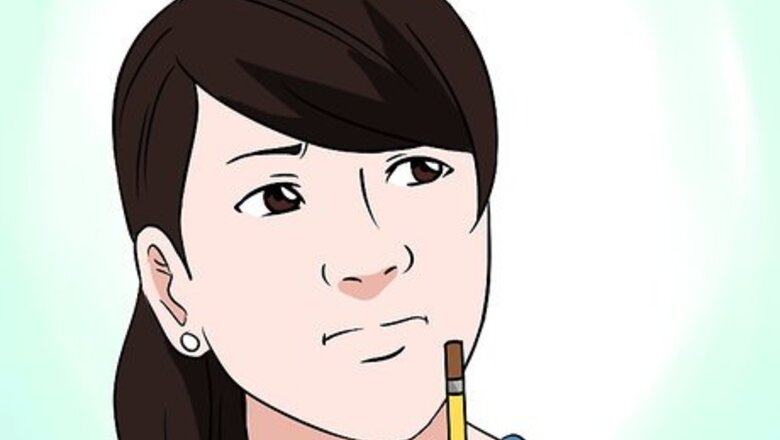
views
Things to Consider Beforehand

Realize that this can change your friendship permanently. It's an all-too-common tale of woe: someone confesses true love to a best friend only to discover that things aren't really "the same" after. Telling your best friend that you love her forces both of you to re-evaluate the way you look at each other. It's important to weigh the relationship you have now against the one you might have only if everything goes well. If your current relationship is really important to you, you may not want to risk it. The fact that it's almost impossible to go back to "the way things were" after your confession doesn't necessarily mean that you'll ruin your relationship with your best friend. However, it does mean that you'll almost definitely change it. For example, if you used to see movies together in a strictly platonic way, this may become an awkward activity.
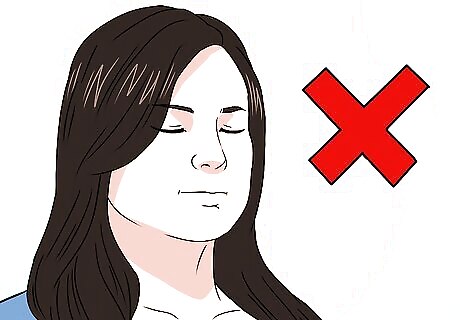
Realize that rejection is a serious possibility. It's very important not to fool yourself into thinking that you'll live happily ever after with her if you can just tell her how you feel. Doing this is setting yourself up for a huge disappointment if she doesn't feel the same way. You don't have to be a pessimist about your chances, but you do need to be realistic and remember that it's her choice whether things move further — not a sure thing. If you can't bear the thought of rejection, you may want to move on. Remember that rejection doesn't always mean that you're not "good enough." There are a number of reasons why someone may not want to date. For instance, she may not want to have a serious relationship with anyone at the moment. There may even be things that you don't know about that prevent her from dating, like work and school commitments that take all of her time.
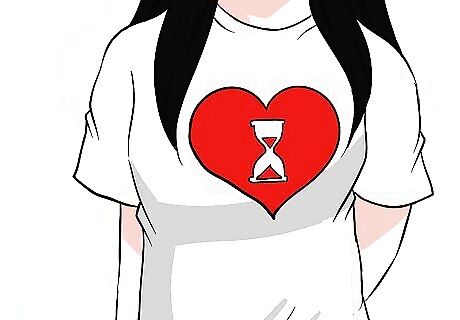
Realize that romantic feelings can change over time. Did your feelings for your best friend arrive suddenly without warning? If so, you may want to give yourself a few weeks or months to see whether the feelings "stick." Feeling attracted to someone today doesn't necessarily mean you'll feel the same way forever. Don't risk a great friendship with a confession of love only to discover that what you really had was a short-term crush (or, as psychologists say, an "infatuation"). Below are just a few signs that these professionals use to identify infatuation: Infatuation comes on almost instantly (rather than gradually). Infatuation is powerful, but short-lived. Infatuation is mainly focused on physical attraction. Infatuation makes you see the other person as "perfect" or "flawless" This is different than seeing someone as perfect for you --that is, someone who has flaws, but you appreciate these flaws because you are able to compensate for them. Infatuation isn't being in love with someone else — it's being in love with the feeling of being in love.
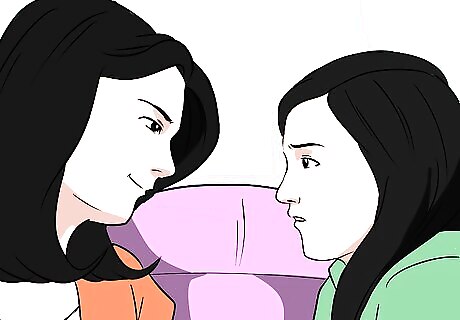
Realize that you don't have to go it alone. Though it can be a little awkward to talk with other people about deeply personal feelings, it's often a good idea in situations like this. Having a crush can make it hard to judge situations realistically, so other peoples' advice can be a huge help. If it seems like most of your peers are telling you not to go after someone, you should seriously consider their advice. A few people you may want to consider talking to include: Your other friends Her friends (if you know them well enough) — they may even be able to tell you how she feels about you Siblings or parents that you're especially close to A counselor or teacher you trust
Getting Ready

Wait for an appropriate opportunity. When you tell your best friend you love her, you want to do as much as you can to make her calm and comfortable. Pick a time and a place where neither of you will have other big emotional stresses to worry about. It's difficult for anyone to make smart decisions about romantic issues when they're already under pressure from something else. A few examples of things that can make for a less-than-great environment to talk about your feelings with her include: She has something important coming up that she needs to focus on (like a big exam or a role in a play). She has just gotten out of a major relationship (or is still in one — this is a definite no-go). She is going through a difficult period in her life (trouble at work or school, family issues, etc.). An example of a good time and place to bring your feelings up is when you're enjoying a comfortable, casual one-on-one hangout on the weekend.

Test the waters with subtle flirting. Dropping delicate hints about your intentions is a good way to judge your chances of success without putting your friendship at too much of a risk. If she responds to your gentle flirting lukewarmly or seems to feel uncomfortable, you'll know to back off. See our article on flirting for great step-by-step instructions. A few basic tips you may want to keep in mind can be found below: Use affectionate body language. Maintain good eye contact and smile. Touch her arm or shoulder when she makes you laugh. Gently tease her for minor slip-ups. For best results, have a good sense of humor about it and make it obvious that you're kidding. Try to one or two weave compliments into the conversation. If you can do it while also gently teasing her, all the better. Keep things lighthearted and don't come on too strong. You may risk tipping your hand too early or even creeping her out.
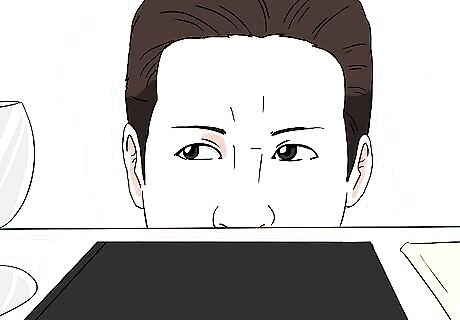
Don't arrange a "date" yet. Dating is something you do after you establish a romantic connection with someone — not before. Treating your best friend to a nice candlelit dinner may seem like a nice thing to do, but it can be confusing for her if she doesn't catch on to what you're trying to do (or awkward if she does). Save the presents and formal dinners for later. Your best bet for now is to arrange a much more casual hang-out session. In addition, you'll be spending money (maybe even quite a bit of it) on something that may turn out poorly for you. If you save your money, you can always take someone else on a date if your best friend doesn't have romantic feelings for you.

Bring your friend somewhere semi-private when you want to tell her. There's almost no way to have this conversation without both of you having strong emotions, so give her the courtesy of a little privacy. You don't have to be completely isolated for this, but it should be someplace comfortable where your conversation won't be overheard and you won't be interrupted. An example of a good place to have this conversation is a bench in a park far away from other people. You'll be comfortable, it will unlikely for other people to interfere, and, best of all, you'll have a romantic view. Whatever you do, don't make a big public spectacle. Remember that there's a significant chance she'll say "no" — in this case, attracting a crowd will be very embarrassing for both of you.

Take a deep breath before you "dive in." When you're with your best friend somewhere private and comfortable, you have one final chance to back out. If you're still ready to go through with things, it's time to tell her what's been on your mind. Do your best to stay relaxed while you open up to your friend. Remember — it'll all be over soon, and even if things don't go your way, you'll at least have peace of mind. It's only natural to get some butterflies (and many girls will find a little nervousness cute), but being so nervous that you can barely get your words out will make things a lot harder. See our article on staying calm under stress for more help.
Taking the Big Leap

Be honest. Don't waste much time beating around the bush. Be simple and direct. Tell your friend how she makes you feel. This will be different for everyone, so try to follow your heart. A few things you may want to mention are suggested below, but feel free to phrase things differently if you think it will be more genuine. Tell her that, lately, you've been thinking of her as more than a friend and that you wanted to know how she felt. Tell her that you've been struggling your feelings for some time and that you're just relieved to finally open up about it. Tell her that, no matter how she feels, you value her and you want to have a positive relationship with her. This is crucial — you don't want her to feel like you're only interested in knowing her if she wants to be romantic with you
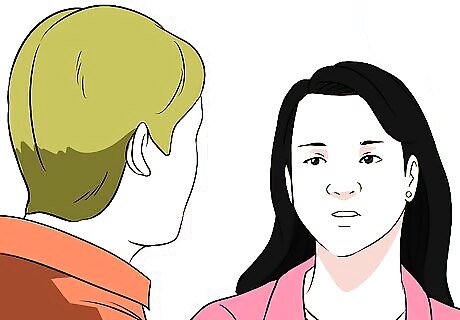
Give her a convenient way out if she doesn't want to be with you. This conversation is likely to be a little awkward no matter which way it goes. However, you can make things much less awkward for both of you if you give your friend a reasonable way to say "no" without embarrassing herself. This isn't as hard as it sounds — basically, just mention that it's OK if she doesn't want to get together right now. A few things you may want to mention are listed below: Tell her that you completely understand if she can't be in a relationship right now. Tell her that you don't know whether she has anything going on in her life that might keep you two from dating. Stress that you won't be upset if she doesn't feel the same way as you.

Try to keep the conversation low-key. Big, dramatic displays of emotion might seem like a good idea, but they can make this conversation a lot more stressful and tense than it needs to be. Try to talk in a calm voice and to use a friendly, lighthearted tone. You can even use a little humor to ease the tension by joking about how antsy you've been to talk about this — a well-placed laugh can make things much easier. Note: You will probably want to avoid actually using the word "love." For many people, this word can have a huge weight that may make the prospect of being with you a little scary. Most relationship experts recommend against using "the L word" until after you're dating.
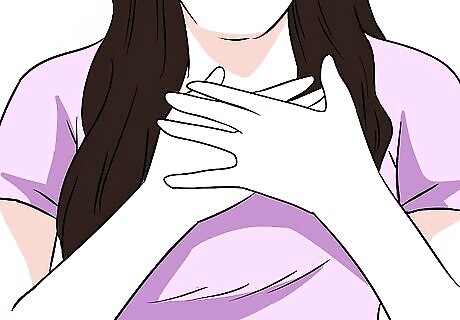
Don't press your friend for a decision. The decision you're asking your friend to make is an important one. Don't force her into a position where she has to give you an answer right away or she may not be able to give the best, most honest answer possible. If she seems on the fence, tell her that it's alright if she needs some time to think. Tell her that you're willing to give her space while she's making up her mind.
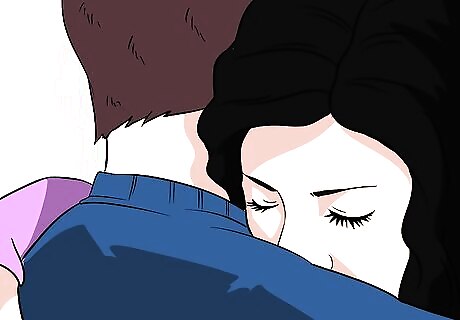
Listen and accept whatever outcome you get. Ask for your friend's input throughout the conversation — be sure to allow her to express her self and not to dominate the conversation. When she comes to a decision (whether that's right away or days later), listen to what she says. It's OK to ask questions about the way she feels, but don't question the decision itself. This is her decision to make and yours to accept (not the other way around). If she doesn't feel the same way about you that you feel about her, don't try to change her mind. This is an easy way to come across as desperate. If you really love her, you should want her to be happy, even if you don't agree with her reasoning.

Be ready to give your friend a little space. If your best friend reacts positively, congratulations! Celebrate your success by planning a date with your new sweetheart. If, on the other hand, your friend doesn't like the idea of romance, you should be prepared to "step back" from your relationship — at least for a while. There may be difficult feelings on both side even if your best friend lets you down gently and gracefully. Luckily, as the old saying goes, "time heals all wounds." Spending a few weeks or a month away from someone who's rejected you can be a very good thing. It can allow you to heal, accept the fact that you won't be getting together, and move on to new romantic prospects. When you do meet up with your best friend again, take things slow. You may not go back to the same level of intimacy you had before right away. Be willing to gradually work your way back into a close platonic relationship. It may not be exactly the same as the relationship you used to have, but it's unlikely to be worse.











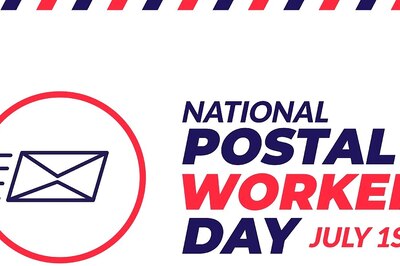






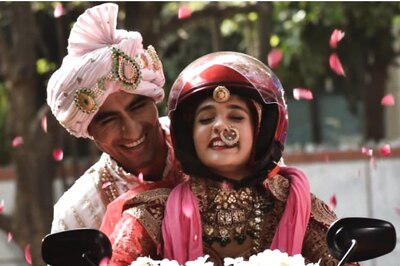

Comments
0 comment